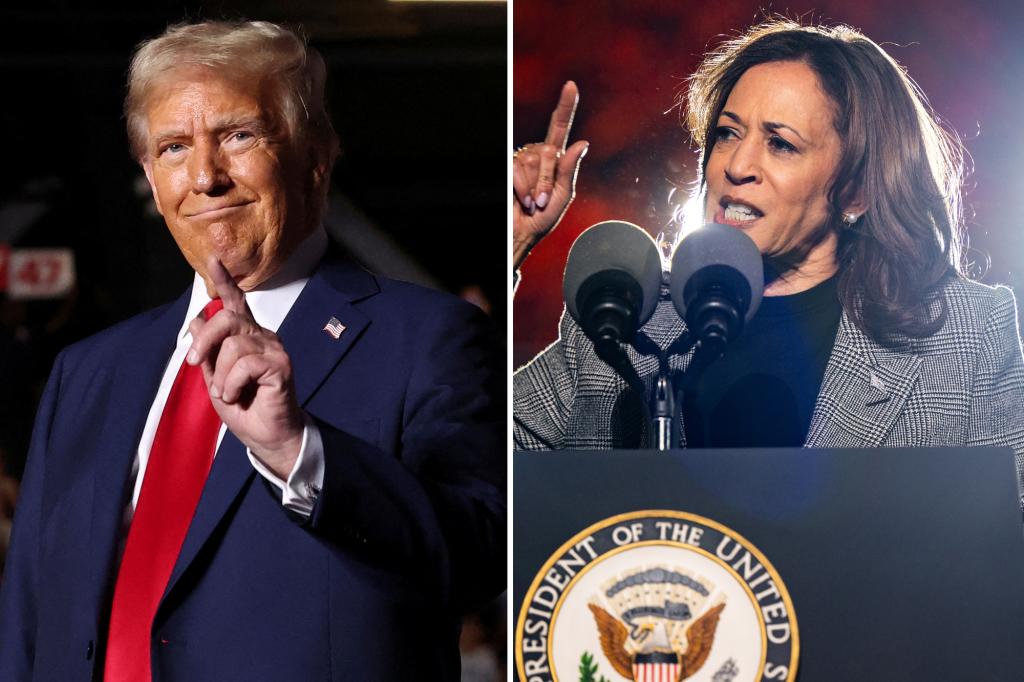Former President Donald Trump urged his supporters to “be nice” after a “lock her up” chant was directed at Vice President Kamala Harris during a rally in Georgia. Trump encouraged his followers to stand up and tell Harris on Election Day that she’s fired, but quickly interjected, asking them to be nice. He recalled similar chants directed at Hillary Clinton during his 2016 campaign, where he would reassure his supporters that they should relax as he believed they would win and emphasized unity after his victory. Trump admitted that he could have pursued charges against Clinton over her email scandal, but chose not to out of concern for national unity.
During the rally, Trump mentioned the criminal indictments against him after announcing his 2024 White House run, pointing out how they made him more popular. He criticized the administration for going after their political opponent, drawing parallels to the “lock him up” chants heard at Harris campaign rallies. Harris typically defuses these chants by telling her supporters that the court system will handle it. President Biden himself has also mentioned the need to “lock him up” in reference to Trump, leading to a legal team argument in Trump’s 2020 election interference case that the charges were politically motivated. Biden clarified that he meant Trump needed to be locked up politically.
The exchange of “lock him up” and “lock her up” chants further highlights the political divisiveness in the country. Trump’s handling of the chants aimed at his political opponents contrasts with his own experience, where he chose not to pursue charges against Clinton despite the calls to do so. Trump’s strategy of urging unity and trying to avoid personal attacks on his opponents is juxtaposed with the more aggressive stance taken by some Democrats, including President Biden. The political implications of these chants, whether taken literally or as a reflection of partisan rhetoric, underscore the deeply divided nature of American politics.
Trump’s addressing of the chants and his discussion of his handling of similar situations in the past show his strategic approach to managing his supporters and the public perception of his actions. His decision not to pursue charges against Clinton was rooted in a concern for the country’s well-being and a desire for unity after the election. However, Trump’s critics may view this as a selective application of justice depending on the circumstances. The chants at the rally and the subsequent legal arguments tied to them illustrate the ongoing political battles and the way in which they manifest in public discourse and legal strategy.
The back-and-forth between political leaders, their supporters, and the legal implications of their statements provide insight into the current state of American politics. The chants, while symbolic of the strong emotions and divisions present in the country, also serve as a reminder of the power of words and the ways in which they can be interpreted and used for political gain. Trump’s handling of the chants aimed at Harris and Clinton underscores his approach to maintaining control over his supporters while defending his own actions. The ongoing debate over the appropriateness of these chants and their impact on the political landscape reflects the broader tensions and challenges facing the nation in a contentious and polarized political climate.














